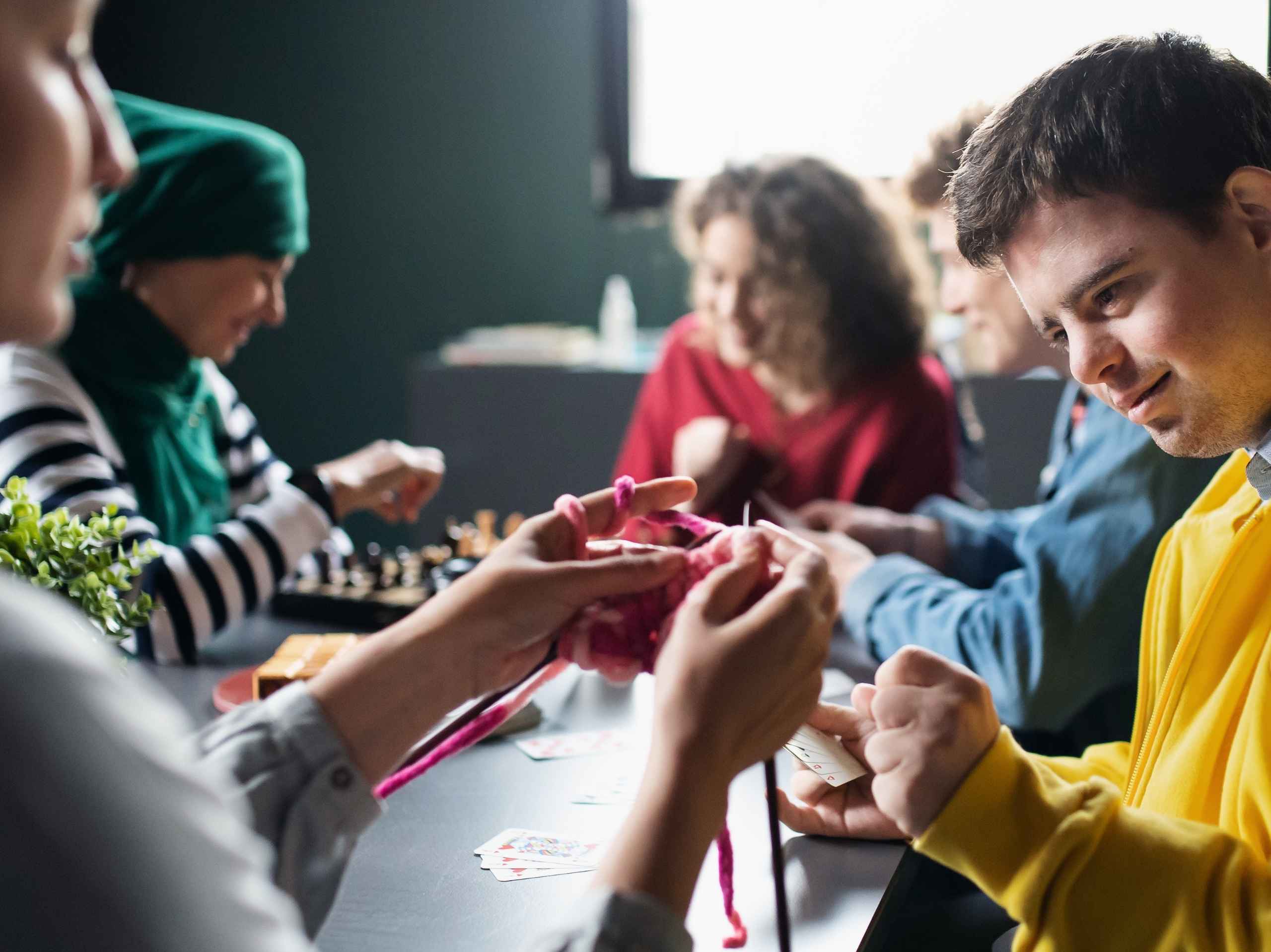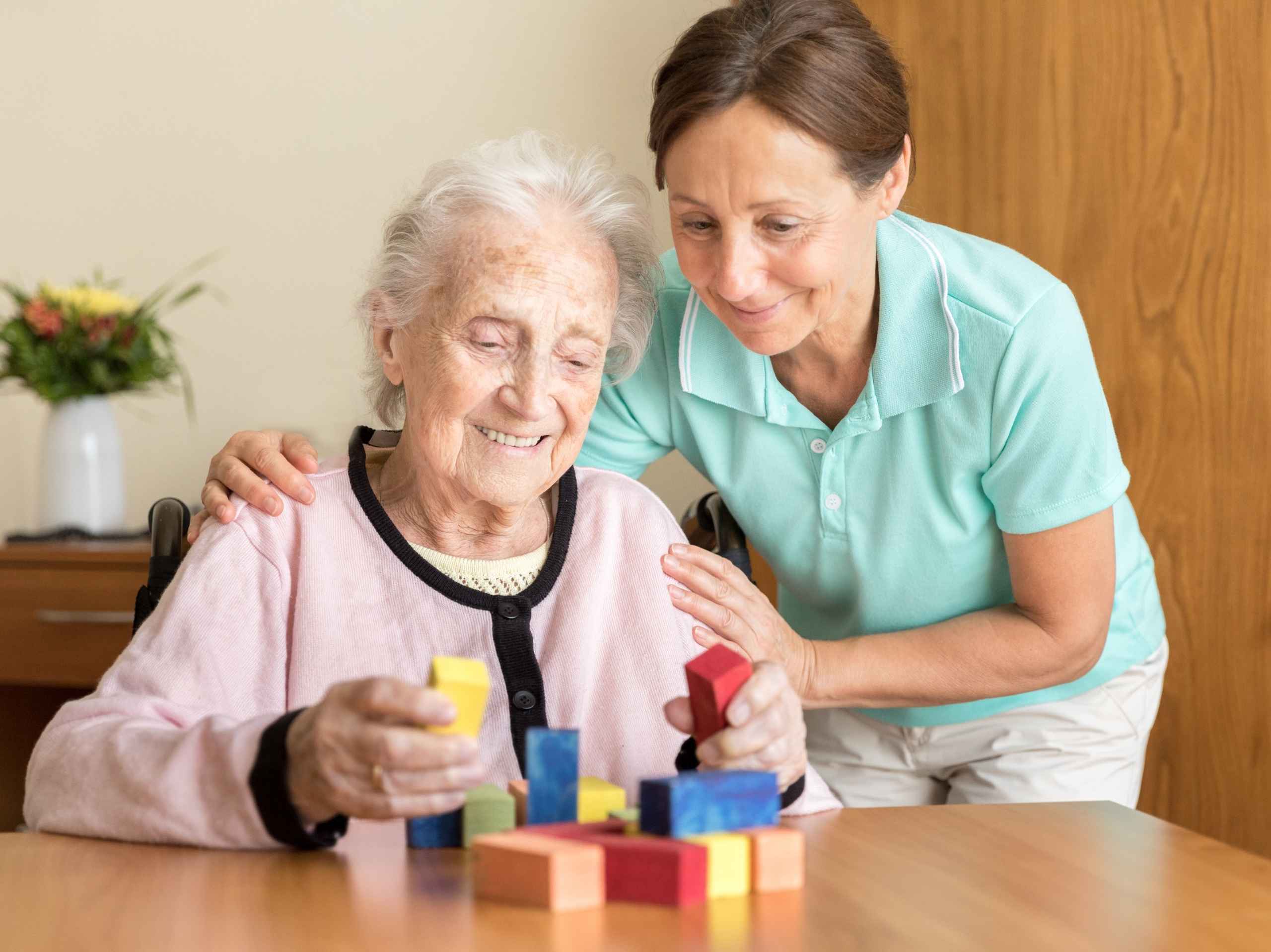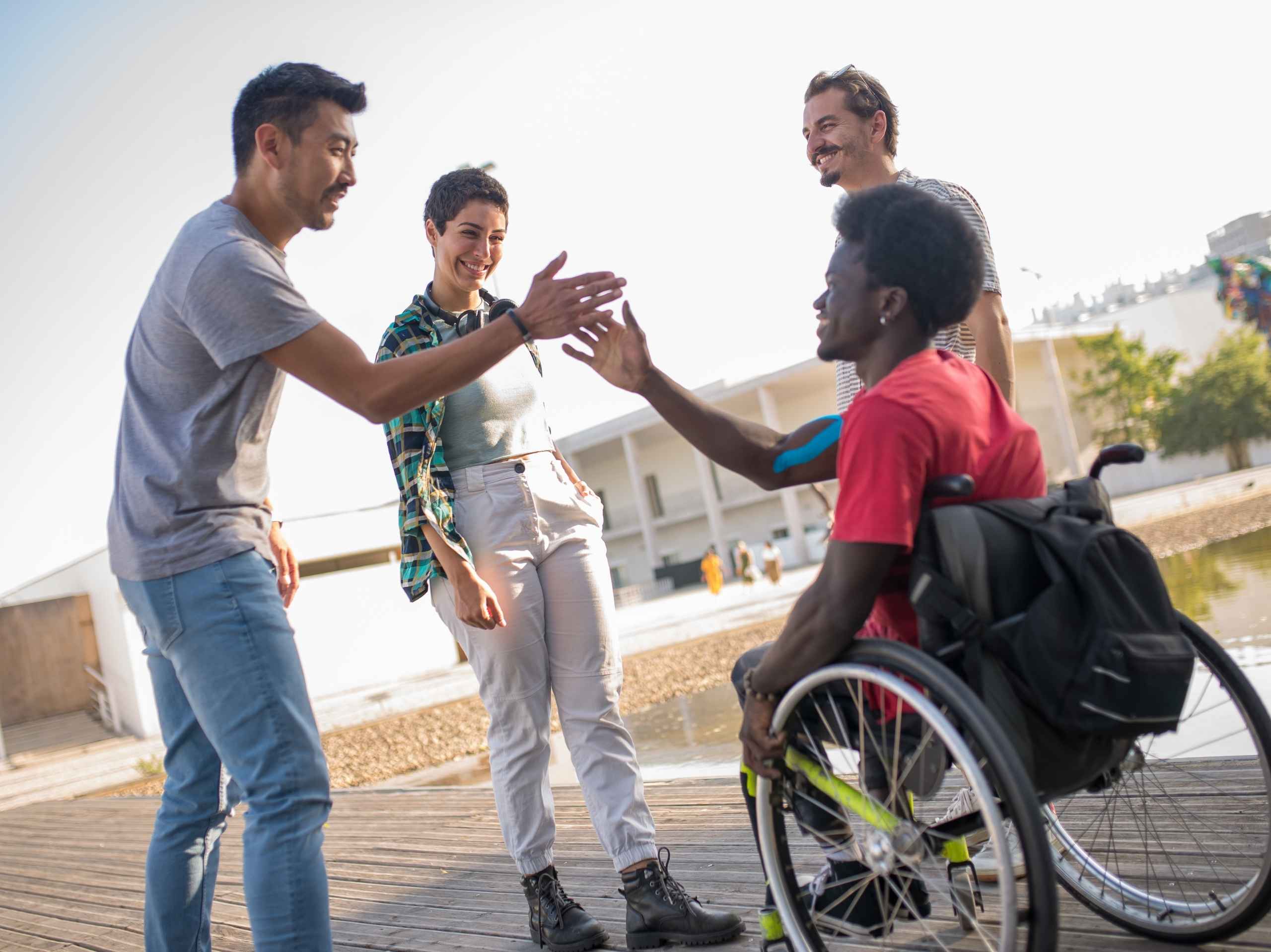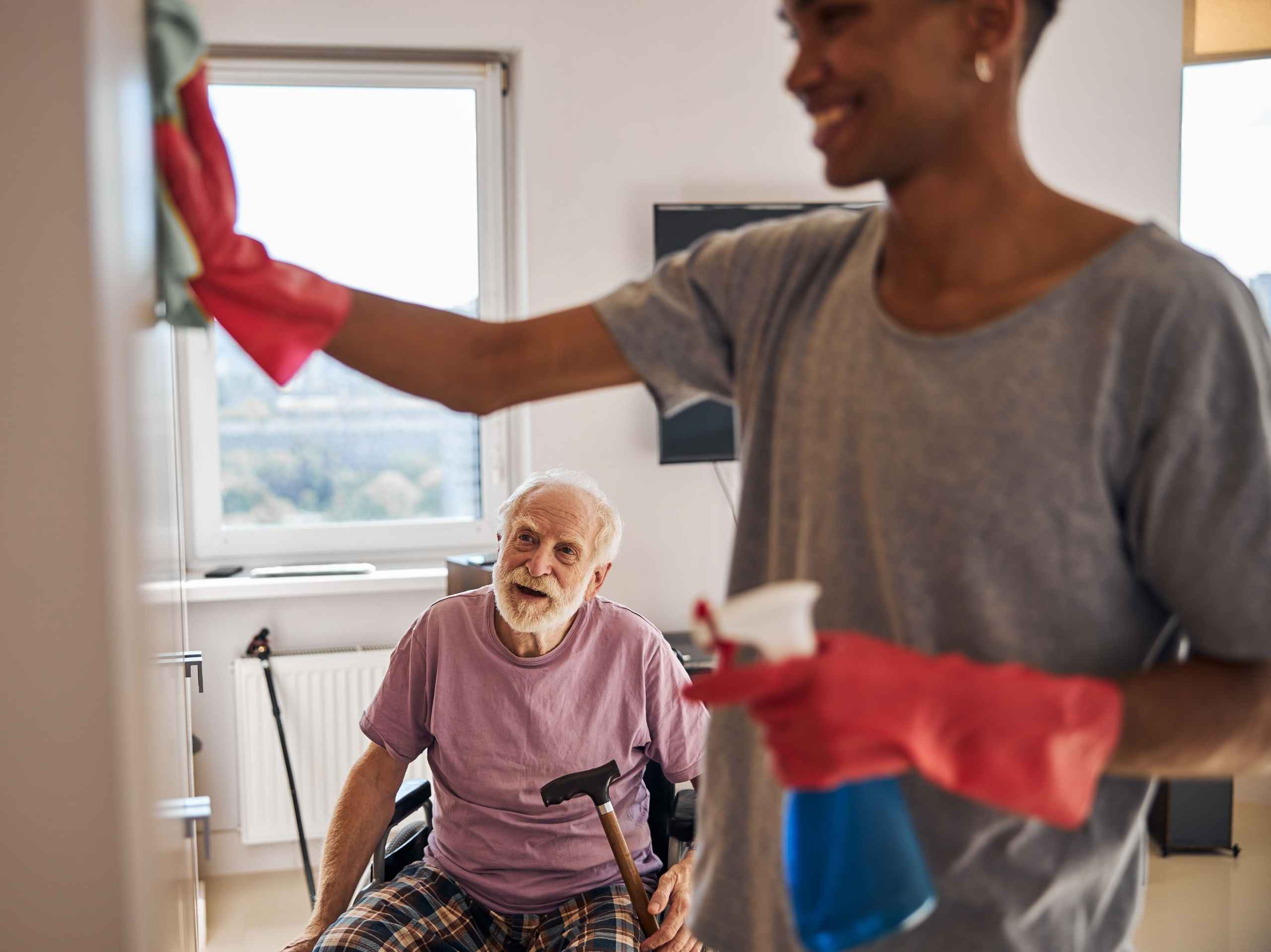Community participation plays a crucial role in enhancing the quality of life for NDIS participants. Engaging in social activities is more than just a way to pass the time—it’s an opportunity to build confidence, develop new skills, and promote independence.
For many NDIS participants, joining community programs can be life-changing, helping them break out of isolation and become active, valued members of society. Whether it’s through social inclusion for NDIS participants, skill-building workshops, or recreational outings, these experiences contribute to personal growth and a sense of belonging.
At Reaching Abilities, we are dedicated to providing uplifting, supportive experiences tailored to individual needs. Our goal is to empower every participant through meaningful engagement, ensuring they feel encouraged and valued in everything they do.
The Role of Community Participation in NDIS
Community participation is a core component of the NDIS framework, designed to support individuals in becoming active, engaged, and independent members of their communities. This involvement goes beyond casual socialising—it fosters personal development, boosts confidence, and enhances overall well-being.
By engaging in community participation, NDIS participants can improve their social skills, expand their support networks, and experience the joys of meaningful interactions. The benefits extend to mental, emotional, and even physical health, creating a well-rounded approach to personal growth.
There are various ways participants can get involved, including:
- Social groups: Opportunities to connect with like-minded individuals in a safe and welcoming environment.
- Volunteering: A chance to contribute to the community while developing valuable skills.
- Skill-building workshops: Activities designed to enhance capabilities, from creative arts to practical life skills.
These activities not only provide structure and engagement but also serve as stepping stones to greater independence and self-confidence.
How Community Activities Help Build Confidence
Engaging in community activities can have a transformative effect on confidence-building for NDIS participants. Through structured programs and social interactions, individuals gain valuable experiences that shape their self-esteem and independence.
Social Engagement
One of the most significant confidence boosters is social interaction. Many NDIS participants face barriers to communication, making it difficult to form relationships. Community engagement programs provide a safe space where they can practice social skills, improve communication, and develop friendships.
Skill Development
Personal growth activities such as art classes, cooking workshops, and computer literacy programs allow participants to discover new talents and refine existing skills. Learning something new is a great way to build self-assurance and provide a sense of achievement.
Sense of Belonging
Feeling included and valued is essential for emotional well-being. When participants join a community group or take part in an activity, they experience social inclusion, reducing feelings of isolation and enhancing self-worth.
Increased Independence
Taking part in structured activities encourages individuals to make decisions, take initiative, and step outside their comfort zones. Over time, this leads to greater autonomy, allowing them to navigate daily life with confidence.
Real-Life Examples of Confidence-Building Activities
Community participation comes in many forms, each offering unique benefits to NDIS participants. Here are some of the most impactful activities that promote empowerment through community activities:
Creative Workshops
Art, music, and drama sessions provide an expressive outlet for participants to share their thoughts and emotions. These workshops nurture creativity while improving social skills development and self-confidence.
Recreational Activities
Physical activities like sports, yoga, and dance classes help participants improve their physical health while fostering teamwork and social interaction. Exercise is also a great way to relieve stress and build resilience.
Volunteering Opportunities
Contributing to the community through volunteer work provides a strong sense of purpose. Participants learn new skills, engage in meaningful work, and build confidence in their abilities.
Educational Programs
Courses and workshops on topics such as budgeting, cooking, and digital literacy equip participants with essential life skills. Learning in a supportive environment encourages personal growth and instils a sense of achievement.
Success stories from NDIS participants highlight the impact of these activities. Many have found their confidence soar after discovering hidden talents, making new friends, or achieving personal milestones through these programs.
Benefits of Community Participation for Caregivers and Families
The benefits of community participation extend beyond the participants themselves—caregivers and families also experience positive changes when their loved ones engage in these programs.
Provides Caregivers with Respite
Caring for an NDIS participant can be demanding, and community activities offer caregivers much-needed breaks. Knowing their loved one is engaged in a supportive environment provides peace of mind and time for self-care.
Enhances Family Dynamics
As participants gain confidence and independence, their relationships with family members improve. They become more self-reliant, reducing stress on caregivers and fostering healthier interactions at home.
Builds Trust and Support Networks
Community activities create opportunities for families to connect with other caregivers, forming support networks that offer guidance, shared experiences, and emotional support.
Improves Mental Well-being
Seeing a loved one thrive in social settings and skill-building activities contributes to overall happiness and emotional well-being for both participants and their families.
How Our Services Empower NDIS Participants
At Reaching Abilities, we believe in going beyond the standard NDIS support services in WA. Our community participation programs are designed to cater to the unique needs of every individual, ensuring they feel valued, supported, and empowered.
Personalised Programs
We firmly believe that a one-size-fits-all approach simply doesn’t cut it when it comes to providing effective and meaningful support. That’s why we go the extra mile to tailor our services meticulously to each participant’s unique set of interests, inherent strengths, and individual goals. This personalised approach ensures that every person we support can actively engage in experiences that are not only enjoyable but also deeply fulfilling and conducive to their personal growth.
We take the time to get to know each participant on a personal level, understanding their passions, their aspirations, and the things that truly bring them joy. Whether it’s pursuing a creative hobby, developing new skills, connecting with their local community, or simply enjoying some quiet time, we work collaboratively with each individual to design a support plan that aligns perfectly with their needs and preferences. Our support workers are then carefully matched to participants, taking into account their personalities, interests, and the specific support required. This thoughtful matching process helps to foster strong, positive relationships built on mutual respect and understanding.
By providing a diverse range of activities and programs, and adapting them to suit individual needs, we empower participants to explore their potential, build their confidence, and achieve their goals, whatever they may be. We are committed to creating opportunities for everyone to participate fully in life, to connect with others, and to experience a genuine sense of belonging.
A Family-Centred Approach
At our core, we see ourselves as more than just a service provider; we strive to be an extension of our participants’ families. We understand the vital role that family plays in a person’s life, and we are dedicated to offering compassionate and inclusive support networks that not only meet their practical needs but also foster genuine connections and a strong sense of community. We treat every participant with the same warmth, respect, and care that we would offer our own family members.
We recognise that each family is unique, with its own dynamics, strengths, and challenges. That’s why we work closely with families to understand their specific needs and preferences, ensuring that our support is tailored to complement their existing support systems. We actively encourage family involvement in the planning and delivery of our services, recognising that their insights and perspectives are invaluable.
Our support workers are chosen not only for their professional skills but also for their capacity for empathy, compassion, and genuine care. They are committed to building strong, trusting relationships with participants and their families, creating a supportive and nurturing environment where everyone feels valued, respected, and heard.
Experienced Staff
We understand that providing quality care requires more than just good intentions; it demands a team of highly skilled, dedicated, and experienced professionals. That’s why we invest heavily in recruiting, training, and supporting our staff, ensuring that they are equipped to provide the highest possible standard of care. Our team undergoes rigorous training to develop their expertise in a wide range of areas, including supporting individuals with dementia and other complex needs.
We recognise that individuals with dementia require a particularly sensitive and specialised approach, and our staff are trained to provide care that is tailored to their specific needs, promoting their dignity, independence, and overall well-being. This includes training in effective communication techniques, understanding dementia-related behaviours, and creating a safe and supportive environment.
Our commitment to ongoing professional development ensures that our staff are kept up-to-date with the latest best practices in the field of disability care.
Whether it’s through social skills development, personal growth activities, or positive social interaction, our programs are designed to build confidence and independence every step of the way.
Confidence, Growth & Connection Await
Community participation is a powerful tool in building confidence, fostering independence, and enhancing personal growth for NDIS participants. Engaging in social activities not only promotes skill development but also creates a sense of belonging and empowerment.
Looking to empower yourself or a loved one through community activities? Contact Reaching Abilities today to learn more about our tailored programs and how they can help build confidence and create meaningful connections.

Ozer Tanlasi – Founder and Director of Reaching Abilities
Ozer Tanlasi is the Founder and Director of Reaching Abilities, an organisation dedicated to providing compassionate and empowering support to individuals with disabilities. With a background in allied health and a deep commitment to inclusive care, Ozer established Reaching Abilities to create a welcoming space where individuals can thrive, gain independence, and achieve their personal goals. Her approach is centred around understanding each individual’s unique needs and strengths, ensuring they receive tailored services that make a positive impact on their lives. Under Ozer’s leadership, Reaching Abilities has become known for its compassionate, client-focused approach, supporting individuals and families in building meaningful connections and reaching new potentials.






